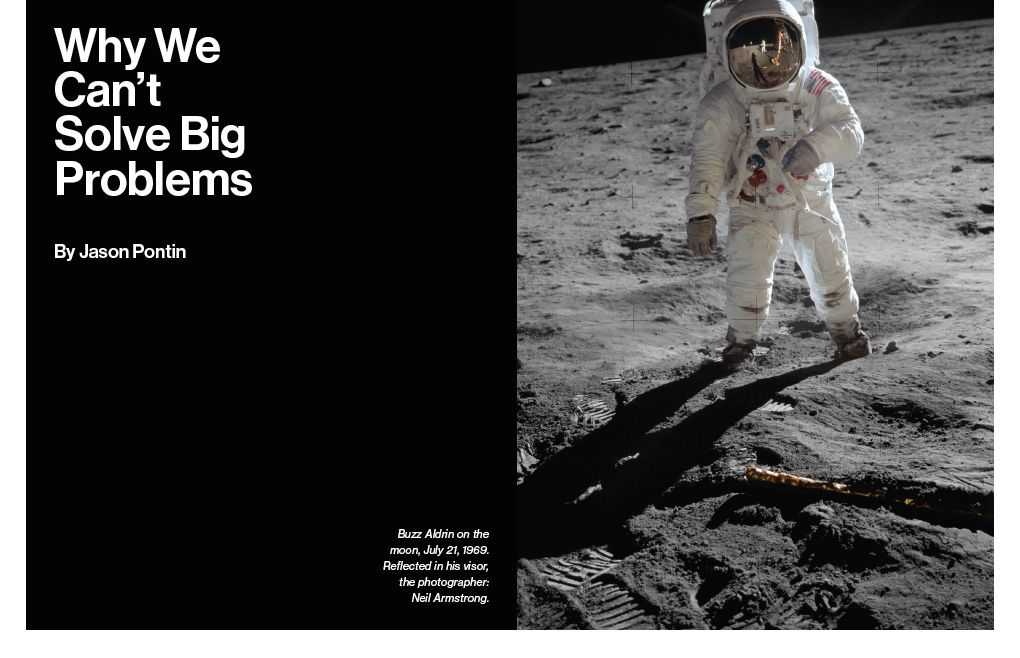Since Apollo 17's flight in 1972, no humans have been back to the moon, or gone anywhere beyond low earth orbit. No one has traveled faster than the crew of Apollo 10 in 1969. Blithe optimism about technology's powers has evaporated, too, as big problems that people had imagined technology would solve, such as hunger, poverty, malaria, climate change, cancer, and the diseases of old age, have come to seem intractably hard.
That something happened to humanity's capacity to solve big problems is a commonplace. Recently, however, the complaint has developed a new stridency among Silicon Valley's investors and entrepreneurs, although it is usually expressed a little differently: people say there is a paucity of real innovations. Instead, they worry that technologists have diverted us and enriched themselves with trivial toys.
While this may be true, it is difficult to believe Silicon Valley's claim that the incentives offered by venture capitalists to entrepreneurs are to blame. In reality, there are many factors that interfere with our ability to solve big problems, including resistance to change among government and industry leaders, an inflated belief in the power of technology to solve all ills, and a lack of understanding about complex issues.
Read more in the MIT Technology Review.
That something happened to humanity's capacity to solve big problems is a commonplace. Recently, however, the complaint has developed a new stridency among Silicon Valley's investors and entrepreneurs, although it is usually expressed a little differently: people say there is a paucity of real innovations. Instead, they worry that technologists have diverted us and enriched themselves with trivial toys.
While this may be true, it is difficult to believe Silicon Valley's claim that the incentives offered by venture capitalists to entrepreneurs are to blame. In reality, there are many factors that interfere with our ability to solve big problems, including resistance to change among government and industry leaders, an inflated belief in the power of technology to solve all ills, and a lack of understanding about complex issues.
Read more in the MIT Technology Review.

